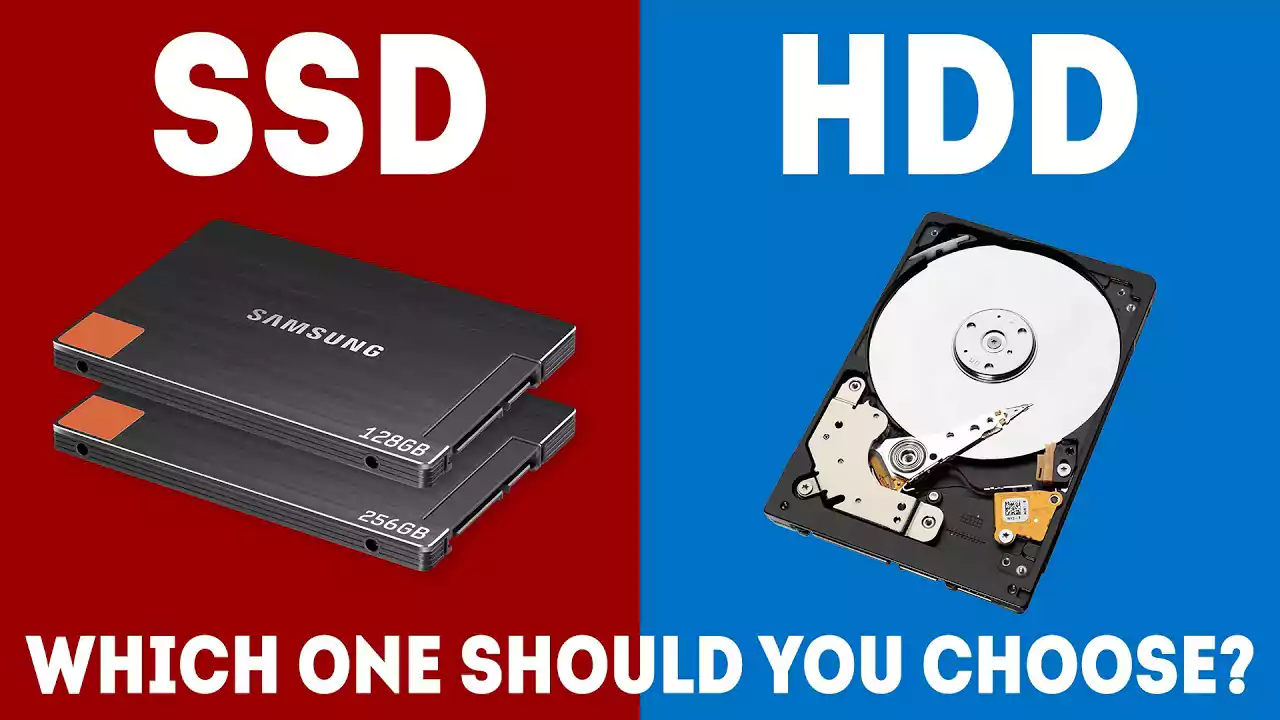As anyone who has ever dealt with a slow computer knows, storage is crucial to overall speed and performance. That’s why, when it comes time to upgrading your storage device, it’s important to choose the right one. Do you go for the old standby, the hard disk drive (HDD), or spring for a newer solid state drive (SSD)?
There are many factors to consider when purchasing a new computer. One important decision is whether to get a solid state drive (SSD) or a hard disk drive (HDD). Both have their advantages and disadvantages. Here is a comparison of the two types of drives to help you decide which is best for you.
There are many factors to consider when deciding whether to purchase a Solid State Drive (SSD) or Hard Disk Drive (HDD). Here are some things to keep in mind:
1. Capacity – HDDs typically have larger capacities than SSDs, so if you need a lot of storage space, an HDD is probably the better option.
2. Speed – SSDs are much faster than HDDs, so if speed is important to you, an SSD is the way to go.
3. Price – HDDs are cheaper than SSDs, so if price is a major factor in your decision, an HDD might be the better choice.
4. Reliability – SSDs are generally more reliable than HDDs, so if you need a drive that you can count on, an SSD is probably the better option.
Which should I prefer SSD or HDD?
There are many different types of computer storage devices on the market today. Two of the most popular are SSDs (Solid State Drives) and HDDs (Hard Disk Drives). But which is better? That depends on a few factors.
SSDs are faster, lighter, use less power, and generate less heat than HDDs. They are also more expensive, have shorter lifespans, and are more susceptible to physical damage.
There are many factors to consider when deciding whether to purchase a Solid State Drive (SSD) or Hard Disk Drive (HDD). Cost is often the primary determining factor, as SSDs can be up to five times more expensive than HDDs. However, SSDs offer several advantages over HDDs.
SSDs are faster than HDDs, with data transfer speeds of up to 6 Gbps. They are also more energy efficient, which can lead to longer battery life in laptops. In addition, SSDs are more resistant to shock and vibration, making them ideal for use in mobile devices.
HDDs are still a good choice for many users, particularly those who need large amounts of storage space. They are also less likely to fail than SSDs due to their simple mechanical design.
Which is better for long term use SSD or HDD?
With the ever-growing popularity of laptops, many consumers are left wondering which type of storage device is best for their needs. Some may lean towards a more traditional hard disk drive (HDD), while others may prefer a newer solid state drive (SSD). But which is better for long term use?
When it comes to HDDs, they tend to be more affordable and have a larger capacity than SSDs.
When it comes to laptops and PCs, the choice between a hard disk drive (HDD) and solid state drive (SSD) is one that has been debated for years. The main difference between the two is that HDDs are made up of spinning disks that store data on a platter, while SSDs contain no moving parts and instead relies on microchips.
So, which is better for long term use?
SSDs are typically faster than HDDs, which is important if you are using your computer for tasks that require quick loading times, such as gaming or video editing. They are also more resistant to physical shocks and vibration, making them less likely to fail if you drop your laptop.
HDDs are usually cheaper than SSDs, so if you are on a budget, they may be the better option.
Are HDD safer than SSD?
Are HDD safer than SSD? This is a question that many people have been asking lately. With the advances in technology, it is hard to know which storage device is the best to use. There are many factors to consider when making this decision. Price, capacity, and compatibility are just a few of the things to think about. However, one of the most important factors is safety.
HDDs are often thought of as being more reliable than SSDs, but is this really the case? Let’s take a closer look at the two types of storage devices to see which one is truly more reliable.
HDDs have been around for much longer than SSDs, so they have had more time to mature and become more reliable. SSDs, on the other hand, are a newer technology and are still working out some kinks. One major advantage that HDDs have over SSDs is that they are less likely to be affected by physical shocks. For example, if you drop your HDD-equipped laptop, it’s more likely to keep working than if you drop a laptop with an SSD.
SSDs also tend to be more expensive than HDDs, so you’ll have to decide whether the extra cost is worth it for the added reliability.
